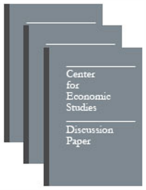Exploring the Hiring, Pay, and Trading Patterns of U.S. Firms: The Dominance of Multinationals Engaged in Related-Party Trade
Exploring the Hiring, Pay, and Trading Patterns of U.S. Firms: The Dominance of Multinationals Engaged in Related-Party Trade
Abstract
We link U.S. job records with both firm-level business register and customs records to construct a novel set of summary statistics and descriptive regressions that highlight the central role played by the small set of multinational firms (denoted RP XM firms) who engage in both importing and exporting with related parties in translating international trade shocks to shifts in labor demand. We find that RP XM firms 1) dominate trade volumes; 2) account for very disproportionate shares of national employment and payroll; 3) employ greater shares of workers in higher pay deciles; 4) disproportionately poach other firms’ high paid workers; 5) offer higher raises to their existing workers. These hiring and pay patterns generally exist even among new RP XM firms, but strengthen with RP XM tenure, and continue to hold, albeit at smaller magnitudes, after conditioning on standard proxies for firm and worker productivity. Taken together, these findings reveal that RP XM status is a reliable proxy for the kind of firm that drives the initial labor market impacts of trade shocks, and that high paid workers are likely to be most directly exposed to such shocks.
Others in Series
Working Paper
Working Paper
Working Paper




